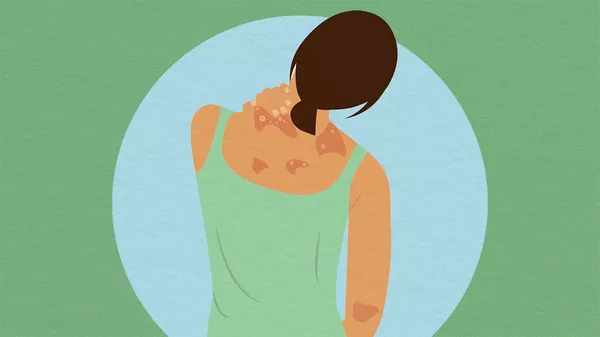Psoriatic arthritis (PsA) is a chronic autoimmune condition characterized by joint pain, swelling, and skin lesions typical of psoriasis. While joint symptoms are well-known in PsA, there are several associated symptoms that can affect patients, including fatigue, mood changes, and even night sweats. Night sweats, or episodes of excessive sweating during sleep, can be distressing and disruptive to sleep quality, impacting the overall well-being of individuals with PsA.
To address whether PsA causes night sweats, it’s important to explore the underlying mechanisms of both the disease and the symptom, and to examine the existing medical literature on this topic.
Psoriatic Arthritis: An Overview
Psoriatic arthritis is a form of inflammatory arthritis that affects individuals with psoriasis, a chronic skin condition characterized by red, scaly patches. The joint inflammation associated with PsA can lead to pain, stiffness, and swelling, often affecting the fingers, toes, spine, and other joints. The exact cause of PsA is not fully understood, but it is believed to involve a combination of genetic, environmental, and immune system factors.
Night Sweats: Understanding the Symptom
Night sweats, clinically referred to as sleep hyperhidrosis, are episodes of excessive sweating during sleep that are not triggered by external factors such as room temperature. While night sweats can occur due to a variety of reasons, including infections, hormonal changes, medications, and other medical conditions, their relationship with PsA remains a subject of interest and investigation.
The Potential Connection: Inflammation and Immune Response
PsA is fundamentally an inflammatory disorder, driven by an overactive immune response targeting the body’s own tissues. This chronic inflammation can affect not only the joints but also other systems in the body. Some researchers suggest that the systemic inflammation seen in PsA could contribute to disturbances in the body’s thermoregulatory mechanisms, potentially leading to night sweats.
Research Findings on Night Sweats in Psoriatic Arthritis
Studies exploring the prevalence of night sweats in PsA patients have yielded varying results. While some investigations have reported a higher incidence of night sweats among individuals with PsA compared to the general population, others have found no significant difference. This variability highlights the need for further research to elucidate the relationship between PsA and night sweats.
Possible Explanations
Several hypotheses have been proposed to explain the occurrence of night sweats in PsA:
1. Inflammation and Cytokine Dysregulation: The inflammatory cytokines involved in PsA, such as tumor necrosis factor-alpha (TNF-alpha) and interleukins, may disrupt normal physiological processes, including thermoregulation, leading to episodes of night sweats.
2. Disease Activity and Stress Response: The severity of PsA symptoms, including pain and fatigue, could induce stress responses that manifest as night sweats during sleep.
3. Medication Side Effects: Some medications used to treat PsA, such as biologics and disease-modifying antirheumatic drugs (DMARDs), may contribute to night sweats as a side effect.
Clinical Management and Patient Care
For individuals experiencing night sweats alongside PsA, it is essential to address both the underlying arthritis and the symptom itself. Healthcare providers should conduct a comprehensive evaluation to rule out other potential causes of night sweats, such as infections or hormonal imbalances. Treatment strategies may involve:
1. Optimizing PsA Management: Controlling inflammation through medications and lifestyle modifications can potentially reduce the frequency and severity of night sweats.
2. Sleep Hygiene Practices: Encouraging good sleep habits, such as maintaining a regular sleep schedule and creating a conducive sleep environment, may help alleviate night sweats.
3. Medication Adjustment: If night sweats are suspected to be a side effect of PsA medications, alternative treatments or dosage adjustments may be considered.
Conclusion
In summary, while the exact relationship between psoriatic arthritis and night sweats remains to be fully elucidated, there appears to be a plausible connection rooted in the systemic inflammation and immune dysregulation characteristic of PsA. Further research is warranted to explore this association and to develop targeted interventions that address both the underlying arthritis and the associated symptoms, ultimately improving the quality of life for individuals living with PsA.
Related Topics:
Can Psoriatic Arthritis Cause Cancer?

























